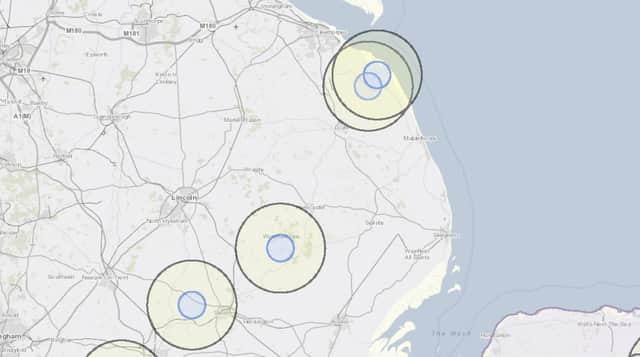Fourth bird flu outbreak reported in Lincolnshire as mandatory Housing order introduced across England


The premises is located a few miles from another facility where the virus was found last week.
Precautions have been introduced in East Lindsey to stop it spreading further.
It is the fourth confirmed case in Lincolnshire this year.
Advertisement
Hide AdAdvertisement
Hide AdIt follows another case confirmed at Woodhall Spa last week, and one at Ancaster near Sleaford earlier in the month.
Birds will be culled at the facility to prevent the highly-transmissible virus (known as H5N1) from spreading.
The government announced on Saturday: “The following disease control zones are in place around the premises: 3km protection zone, 10km surveillance zone.
“All poultry on the premises will be humanely culled.”
The government has introduced a national housing order, making it a legal requirement for all bird keepers to keep their birds indoors and to follow stringent biosecurity measures to help protect their flocks from the disease.
Advertisement
Hide AdAdvertisement
Hide AdOver the last year, the United Kingdom has faced its largest ever outbreak of avian influenza with over 200 cases confirmed across the country since late October 2021.
The introduction of the housing measures comes after the disease was detected at over 70 premises since the beginning of October, as well as multiple reports in wild birds.
The Chief Veterinary Officer is now encouraging all bird keepers across England to use the week to prepare, including taking steps to safeguard animal welfare, consult their private vet and expand housing where necessary.
The United Kingdom’s Chief Veterinary Officer Christine Middlemiss said: "We are now facing this year, the largest ever outbreak of bird flu and are seeing rapid escalation in the number of cases on commercial farms and in backyard birds across England.
Advertisement
Hide AdAdvertisement
Hide Ad"The risk of kept birds being exposed to disease has reached a point where it is now necessary for all birds to be housed until further notice.
“Scrupulous biosecurity and separating flocks in all ways, from wild birds remain the best form of defence. Whether you keep just a few birds or thousands, from Monday 7 November onwards you must keep your indoors. This decision has not been taken lightly, but is the best way to protect your birds from this highly infectious disease.”
It is the first time during this winter’s outbreak that the virus has been found close to another premises with contaminated birds.
Lincolnshire’s food industry was particularly badly hit by avian flu last winter, with more than a million birds culled.
Advertisement
Hide AdAdvertisement
Hide AdMark Keal, Lincolnshire Trading Standards Manager, has urged anyone with birds to maintain good biosecurity.
“If you see dead wild birds, do not touch them, and report them to the Animal and Plant Health Agency Avian flu primarily affects birds and the risk to the general public’s health is very low, but reports from the public can help track the spread of the disease and prevent it infecting poultry and other captive birds,” he said.
You can report dead birds to APHA on 03459 33 55 77.